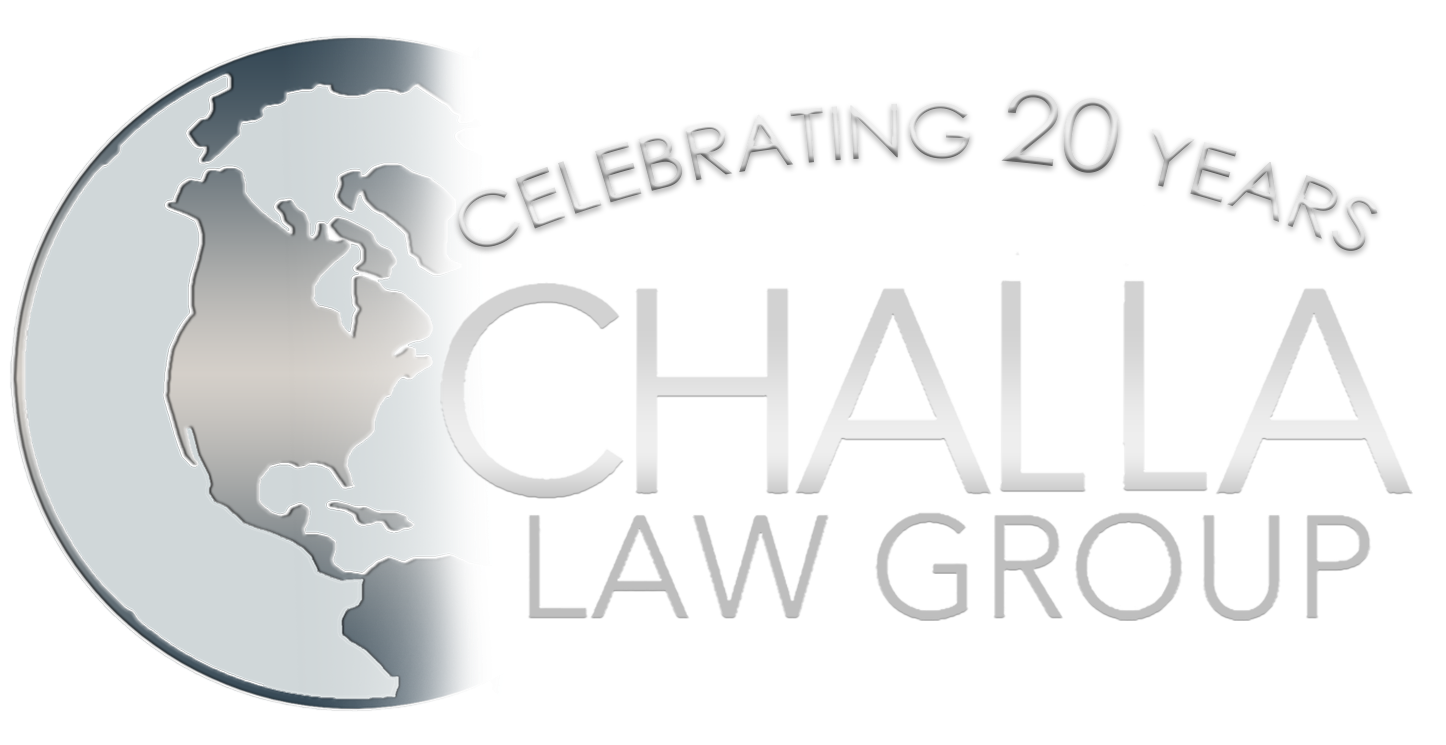
Other Visas
C-1 Visa
Travelers passing through the United States don’t need to be trapped in the airport. The C-1 Visa, also known as the transit visa, enables traveling nonimmigrants to leave the airport and visit family or friends or partake in tourist or shopping ventures. While you are required to leave the U.S. on your departing flight, you are able to spend your waiting time enjoying your surroundings. Each family member should apply for a separate C-1 visa, which will enable the entire family eligible to travel through the U.S. Those with either valid B visas or from a Visa Waiver country, may be able to transit through the U.S. without a C-1 visa.
STEPS
You may petition for the C visas in person or by mail. Please contact the USCIS Branch, U.S. Embassy or U.S. Consular office that has jurisdiction over the location of your home.
DOCUMENTS:
To apply for a C Visa, you must supply the following documents:
- A filled-in visa application Form DS-160. Separate applications for each person are required.
- Two recent photographs 1 & 1/2 inches square (37mm x 37mm) of each applicant, with the entire face visible. The picture should be taken before a light background and without head covering.
- A passport, valid for travel to the United States for at least six months longer than your intended visit.
You must also prove the following:
- You are entering the U.S. only to pass through in transit.
- You have enough funds to reach your proposed destination.
- You have a ticket or other means to reach your proposed destination.
- You have permission to enter the country of your final destination, if necessary.
- Your stay cannot exceed 29 days.
C-2 Visa
The C-2 visa allows foreign nationals to travel to and from the United Nations Headquarters for official work. It also authorities layovers for United Nations officials transiting through the United States. C-2 visas are valid for up to 29 days. C-2 visa holders may not change their status. Under certain circumstances, this visa may be used for aliens in transit and crewmembers.
C-3 Visa
Government officials traveling through the U.S. to a foreign destination may apply for the C-3 Visa. This visa will enable you to leave the airport and enjoy your surroundings. Your family members and personal employees may also apply for the C-3 Visa. C-3 visa holders may not accept employment while under this status. The C-3 visa is valid for up to 29 days, and under certain circumstances may be used for aliens in transit or crewmembers of a ship or aircraft.
D-1 Visa
Crewpersons serving in good faith for normal operations aboard vessels docked temporarily in the U.S. may apply for the D-1 Visa. This classification includes musicians, stewards, technicians, and chefs.
You may temporarily remain in the U.S. for as long as you are a member of the crew. People who are traveling with the D-1 visa holder may remain in the U.S. for as long as the D-1 nonimmigrant is allowed. Under certain circumstances, D-1 visa holders may be permitted to perform longshore work in U.S. ports of entry.
This visa does not apply to workers on U.S. fishing boats.
D-2 Visa
Crewpersons serving in good faith for normal operations aboard vessels may apply for the D-2 Visa. This classification includes musicians, stewards, technicians and chefs. The D-2 visa is designed for crewmembers or airmen who are leaving one vessel to depart on another. Those who are traveling with the D-2 crewmember are allowed to do so for as long as the visa remains valid.
E-1 Visa
U.S immigration policy supports investors and foreign commerce in a variety of ways. The E-1 Visa is issued to individuals known as “treaty traders”. A treaty trader is defined as a national of a country with which the U.S. maintains a treaty of commerce and navigation.
The E-1 applicant must be coming to the U.S. to carry on substantial trade, or to develop and direct the operations of a business in which he or she has invested or will soon invest a substantial amount of capital.
The E-1 visa application may be turned in to the U.S. consular in the applicant’s home country. E-1 visa holders may remain in the United States for up to two years.
Spouses and children of E-1 visa holders may accompany the treaty trader; however, spouses must apply to USCIS in order to work in the U.S.
E-2 Visa
U.S immigration policy supports investors and foreign commerce in a variety of ways. The E-2 visa is issued to individuals known as “treaty investors.” A treaty investor is defined as a national of a country with which the United States maintains a treaty of commerce and navigation.
The treaty investor must be able to demonstrate that they are coming to the U.S. to partake in either a substantial investment (including business in services or technology between, primarily, the U.S. and the treaty nation); or to direct the operations of a business in which the E-2 holder has invested or will soon invest a substantial amount of money.
E-2 visa holders must own more than fifty percent of the proposed investment, unless that person is entering the U.S. as an employee of a business providing more than fifty percent of the total investment.
E-2 visa holders may remain in the United States for up to two years. Your spouse and/or children under the age of 21 may accompany you under derivative status.
I Visa
The I visa is a vital tool for connecting all nations as the international community moves toward increasing globalization. The I visa is available to members of the media, such as reporters, freelance journalists, and film crew members. I visas are available to persons only to work for a foreign media outlet, or a U.S.-based subsidiary of a foreign media company.
I visas are only available to those who are based in their home country, and intend to return home after their job has been completed. The I visa applicant must prove:
- That his or her stay in the U.S. will be temporary.
- That he or she will have sufficient funds to stay in the U.S.
- That he or she intends to return to the home country after the work has been completed.
The I visa holder’s spouse and unmarried children under the age of 21 may be eligible for derivative I status. Applicants for the derivative I visa must include a copy of the media employee’s I visa.
J-I Visa
The J-1 visa is designed to provide educational and cultural exchange programs, and to promote the sharing of individuals, knowledge, and skills in education, the arts and sciences. This visa enables people to participate in exchange programs in the United States.
J-1 visa holders include students, trainees involved in on-the-job training, visiting scholars and researchers, and consultants. Although many J-1 visa holders come to the U.S. for paid on-the-job training, exchange students who visit the U.S. under this status are not permitted to work.
The J-1 applicant must prove:
- That his or her stay in the U.S. will be temporary.
- That he or she will have sufficient funds to stay in the U.S.
- That he or she intends to return to home after the visit.
Your spouse and/or unmarried children under the age of 21 may apply for entry under J-2 status. Dependents of J-1 visa holders may work in the U.S. if they can prove that they are able to provide for their own expenses.
K-1 Visa
Individuals interested in entering the United States to marry an American citizen and reside in the U.S. should apply for a K-1 Visa. The K-1 Visa (also known as the “fiance(e) visa”) grants the holder conditional permanent resident status; however, the marriage must take place within 90 days of arriving in the United States. K-1 visa holders are permitted to work, but must re-apply for a work permit after receiving permanent status. The dependent children of K-1 visa holders may accompany the visa holder under K-2 status.
Life Acts & Amendments
The Legal Immigration and Family Equity (LIFE) Act and amendments, effective since April 1, 2001, created new categories of nonimmigrant visas, including three V Visas, the K-3 Visa, and the K-4 Visa. These extremely helpful visas help ease the immigration process for thousands of individuals, and reunite families separated during the lengthy immigration approval process.
The new categories created by this act allow the issuance of nonimmigrant visas to spouses, children and, in some cases, grandchildren of both lawful permanent resident aliens and spouses of U.S. citizens. Beneficiaries may apply for admission to the U.S. as nonimmigrants and then remain in the U.S. until the visa petition is approved or denied.
The LIFE Act is specifically aimed at spouses and children for whom an immigrant visa or adjustment of status is not available as a result of processing delays or the lack of openings due to annual visa limitations.
V Visas
Spouses and unmarried children under the age of 21 of legal permanent residents who have waited for three years for visa approval may apply for the V visa.
V-1 visas are issued to spouses; V-2 visas are issued to children; and V-3 visas are issued to derivative children of either spouses or children. In order to be classified as V-3, applicants must show that they are the children of V-1 or V-2 status individuals. All applicants must be eligible for visa issuance under all other applicable immigration laws.
Because V Visas are only available for petitions filed on or before December 21, 2000, the category will cease to exist when there are no more eligible candidates.
V visas are valid for up to two years.
K-3 and K-4 Visas
K visas are open to spouses of U.S. citizens who are the beneficiaries of an immigrant visa petition. The spouses’ unmarried children under the age of 21 are also eligible. After arriving in the U.S. under K status, these visa holders must apply for an immigrant visa or adjustment of status. K visa holders may seek employment regardless of whether their permanent status has been approved.
K visas are valid for up to two years.
Q-1 Visa
The Q-1 visa supports international cultural exchange such as practical training, employment, and the sharing of the history, culture, and traditions of the participant’s home country in the U.S. This visa enables individuals to participate in exchange programs in the U.S.
Q-1 visa holders must be at least 18 years old and possess the ability to effectively convey their home country’s history and culture for a U.S. audience. Their U.S. sponsor must agree to pay them the same rate that a similar worker in the U.S. would receive.
The Q-1 application must be accompanied by evidence that the employer/sponsor:
- Intends to provide “an overview of the attitude, customs, history, heritage, philosophy, tradition and/or other cultural attributes of the participant’s home country” (USCIS).
- Intends to make the program available to the public for the purpose of intercultural exchange between the visa holder and the American public.
- “Has designated a qualified employee to administer the program and serve as liaison with USCIS” (USCIS).
- Can provide a working environment comparable to that of a domestic employee providing the same services.
- Is capable of properly compensating the Q-1 visa holder for his or her work.
Don’t hesitate to contact us today for more information pertaining to applying for student visas, spouse visas, and other temporary options. We are proud to serve clients in Richmond, VA, and the surrounding areas through the use of our unique international perspective.





















